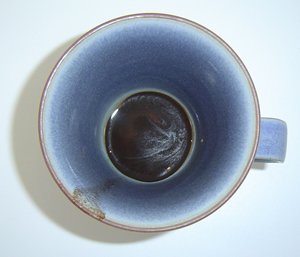Apr 1 2005
Scientists at the Nowayski Institute of Physical Sciences, Russia, have reported the discovery of a new element they have now registered as "Mozanium".
Formed during a mid temperature fusion experiment which involved a proprietary form of carbon and heavy water, Dr. Beika Mppetski the team leader reported that the element is very difficult to isolate and is usually found in combination with celulosic compounds.
Asked how the discovery was made Dr. Mppetski told the waiting reporters that he’d been performing a 100C cold fusion experiment in his lab reactor and had inadvertently discarded the stirring vessel.
When he’d returned to the vessel several days later, he discovered a black gelatinous mass with unique adhesive properties.
Further STEM, TEM, AFM and STIR investigations had revealed that the substance contained traces of the new element, several forms of carbon compounds and the heavy elements Bollonium and Plonkerium.
Asked about the choice of name for the new element Dr. Mppetski admitted that it was derived from the reverse spelling of his favourite web site on the whole planet, namely AZoM.com.
The research team is now conducting further investigations into possible uses of Mozanium in cappuccinos and milk shakes. Ratification of the element will be conducted with the official body the Multinational Agency for the Registration of Special Elements (MiARse).

1st April 2005